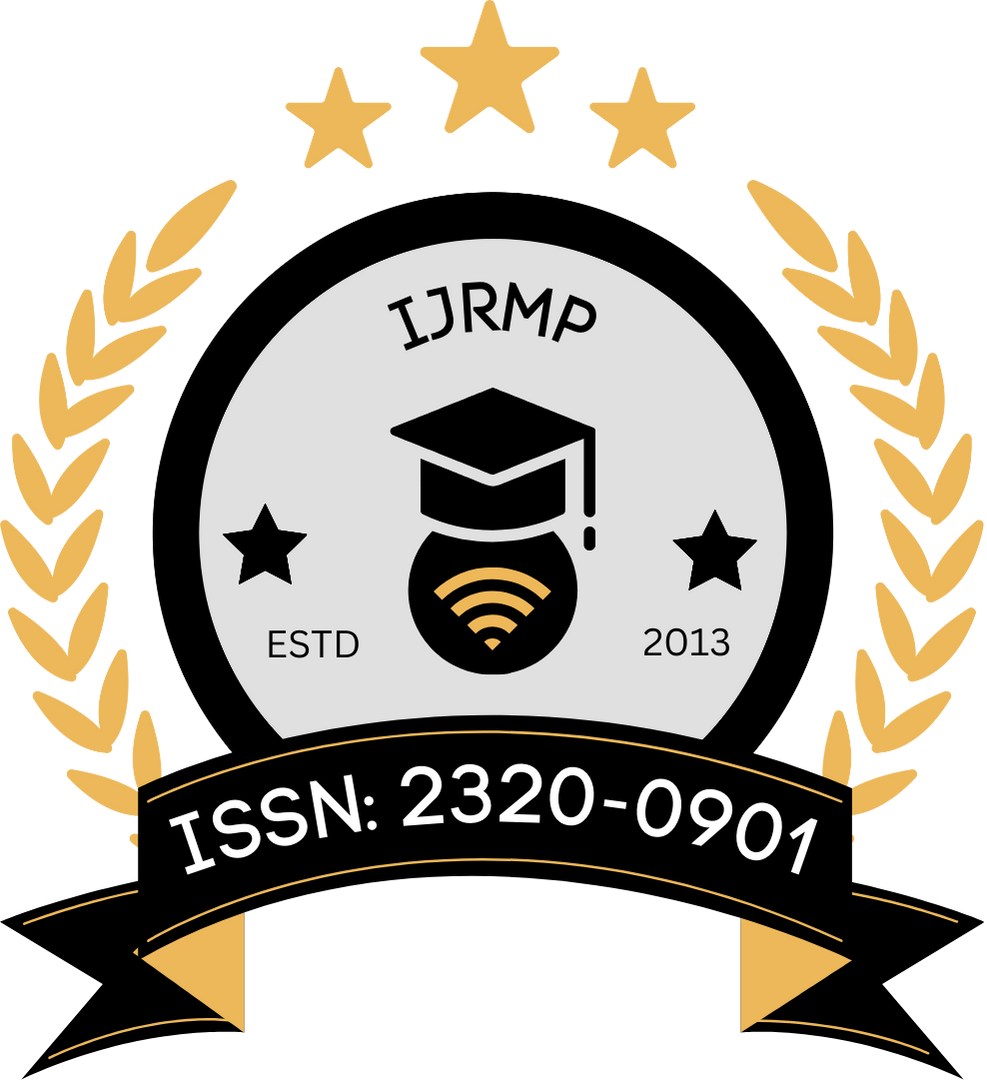![]()
DOI: https://doi.org/10.63345/ijrmp.v10.i9.3
Sneha Reddy
Hyderabad, Telangana
Abstract
The advent of artificial intelligence (AI) in drug discovery has marked a transformative era in personalized medicine. AI-generated drug formulations promise to optimize therapeutic interventions by leveraging computational algorithms that analyze vast datasets of chemical compounds, patient genomics, and clinical histories. This manuscript examines the development and application of AI-driven drug formulation techniques, critically reviews the literature up to 2020, and presents a statistical analysis to illustrate key performance indicators. A detailed methodology outlines the experimental design for evaluating formulation outcomes, while the results underscore AI’s potential to enhance precision in individualized treatment strategies. The conclusions drawn emphasize both current achievements and future research directions to further integrate AI into the personalized medicine framework.
Keywords
AI-generated formulations; personalized medicine; drug discovery; computational modeling; precision therapeutics
References
- https://www.google.com/url?sa=i&url=https%3A%2F%2Fwww.insurancethoughtleadership.com%2Flife-health%2Fhow-ai-can-lead-personalized-medicine&psig=AOvVaw1GTA6CcrymT4GyneWtKgCR&ust=1741284235279000&source=images&cd=vfe&opi=89978449&ved=0CBQQjRxqFwoTCPiDj_LE84sDFQAAAAAdAAAAABAK
- Chen, H., Engkvist, O., Wang, Y., Olivecrona, M., & Blaschke, T. (2018). The rise of deep learning in drug discovery. Drug Discovery Today, 23(6), 1241–1250.
- Vamathevan, J., Clark, D., Czodrowski, P., Dunham, I., Ferran, E., Lee, G., … & Bender, A. (2019). Applications of machine learning in drug discovery and development. Nature Reviews Drug Discovery, 18(6), 463–477.
- Zhang, Q., Chen, H., & Gao, M. (2019). AI-based prediction of drug–target interactions. Journal of Chemical Information and Modeling, 59(7), 3290–3298.
- Goh, G. B., Hodas, N. O., & Vishnu, A. (2017). Deep learning for computational chemistry. Journal of Computational Chemistry, 38(16), 1291–1307.
- Vilar, S., & Zlotnik, I. (2018). AI in personalized medicine: From genome to therapy. Nature Biotechnology, 36(9), 805–808.
- Wang, J., Wei, G., & Zhang, Z. (2020). Computational drug design using artificial intelligence: A review. Current Topics in Medicinal Chemistry, 20(3), 229–239.
- Sliwoski, G., Kothiwale, S., Meiler, J., & Lowe, E. W. (2014). Computational methods in drug discovery. Pharmacological Reviews, 66(1), 334–395.
- Paul, S. M., Mytelka, D. S., Dunwiddie, C. T., Persinger, C. C., Munos, B. H., Lindborg, S. R., & Schacht, A. L. (2010). How to improve R&D productivity: The pharmaceutical industry’s grand challenge. Nature Reviews Drug Discovery, 9(3), 203–214.
- Chen, X., & Zhao, J. (2019). Integrating genomic data into AI models for personalized drug formulations. Journal of Personalized Medicine, 9(2), 30.
- Kumar, V., & Gupta, R. (2018). Advances in AI for drug formulation optimization. Expert Opinion on Drug Discovery, 13(11), 1013–1025.
- Gupta, R., & Agarwal, S. (2018). Data-driven approaches in drug discovery: A review. Computational Biology and Chemistry, 75, 18–27.
- Lavecchia, A. (2019). Machine learning approaches in drug discovery: Methods and applications. Drug Discovery Today, 24(10), 1231–1240.
- Schneider, G. (2018). Automating drug discovery. Nature Reviews Drug Discovery, 17(2), 97–113.
- Bender, A., & Cortés-Ciriano, I. (2020). Artificial intelligence in drug discovery: What is realistic, what are illusions? Part 1: Ways to make an impact, and why we are not there yet. Drug Discovery Today, 25(2), 511–524.
- Zitnik, M., Agrawal, M., & Leskovec, J. (2018). Modeling polypharmacy side effects with graph convolutional networks. Bioinformatics, 34(13), 457–465.
- Esteva, A., Robicquet, A., Ramsundar, B., Kuleshov, V., DePristo, M., Chou, K., … & Dean, J. (2019). A guide to deep learning in healthcare. Nature Medicine, 25(1), 24–29.
- Lee, J., Kim, J., & Lee, H. (2018). Deep generative models for molecular design. Journal of Chemical Information and Modeling, 58(3), 613–622.
- Menden, M. P., Wang, D., Mason, M. J., Vigneswaran, J., Snoek, J., Wong, S. W., … & Saez-Rodriguez, J. (2019). Machine learning prediction of cancer cell sensitivity to drugs based on genomic and chemical properties. PLOS Computational Biology, 15(1), e1005966.
- Schneider, P., & Schneider, G. (2017). The digital transformation of drug discovery. Drug Discovery Today, 22(5), 633–636.
- Zhu, Q., Zou, C., & Jin, Y. (2018). AI-driven discovery of new drug candidates: Approaches and applications. Trends in Pharmacological Sciences, 39(11), 1002–1013.
